|
11/12/2019 St. Josaphat: Model of Charitable Evangelization and Promoter of Christian UnityRead NowToday is the feast day of St. Josaphat, a monk and bishop who was martyred in modern-day Belarus due to his efforts for Christian unity in the 17th century. He was born John Kuncevic to Orthodox Christian parents in the late 1500s in Lithuania. Despite strong anti-Catholic sentiment in the Eastern Orthodox churches, a number of Eastern Catholic bishops signed the Union of Brest in 1598, which allowed several Eastern churches to maintain their liturgical rites while remaining in full communion with Rome. Following the leaders of his Ruthenian Church, John chose to unify himself with Rome and subsequently entered monastic life, taking on the name Josaphat.
As a priest and later a bishop, St. Josaphat worked tirelessly for reunification between the Roman Catholic church and the Eastern Orthodox tradition; he produced apologetics texts and catechisms, published defenses of ecumenism, and reformed the priesthood in his diocese. He struggled against an influential rival Orthodox bishop and schismatic preachers who slandered Josaphat’s reputation and who denounced his desire for Christian unity. Eventually, in the early 1620s, St. Josaphat was attacked by an anti-unification mob, who shot and beheaded him before dumping his body into a nearby river. After his death, many of his former dissidents converted to union with Rome and even Josaphat’s greatest Orthodox rival eventually returned to the authority of the Roman Catholic Church. What struck me when reading about St. Josaphat’s story was the utter breakdown in civil discourse. There were members on either side of the reunification debate who, while they disagreed strongly with one another, were able to do so without coming to blows. But after decades upon decades of increasing tension between the Roman Catholic Church and the Orthodox Christian churches, even a peaceful reformer and ardent defender of unity like St. Josaphat came to be seen by some as an enemy who must be taken down. And there were some whose support of maintaining the schism was so strong that they openly murdered the nearest figurehead of the ecumenical movement. At times like ours, when it feels like there is division and violence all around us, I find it comforting to look at the history of the Church and to see that she has struggled against division almost as long as she has existed. The difficulties that St. Josaphat faced in Eastern Europe were not new to the Church—from the Arian heresy to the Eastern Schism and the Protestant Reformation, Church history is littered with examples of people arguing over the truth, outright rejecting the authority of the magisterium, or spreading misinformation about the Church and her mission. St. Josaphat’s life reminds us of how we are called to evangelize with respect and charity in turbulent—and sometimes violent—times. We must work tirelessly for unity without compromising on the fundamentals of the Catholic faith and the authority of the magisterium, and study and defend the truth in respectful dialogue with those who disagree with us. And we must also prepare, perhaps, to be martyred for our efforts. Most of us will not suffer a violent martyrdom as so many saints before us have done, but there are smaller, everyday crosses that we can endure. When pointing out the truth loses us friendships, that is our little martyrdoms. When we have to wake up in the middle of the night to change yet another diaper, that is our little martyrdom. When someone cuts us off on our way home after a long day, that is our little martyrdom. When a family member misunderstands our intentions, that is our little martyrdom. Like Josaphat, let us rely on God to give us the strength and courage to continue in our everyday mission of evangelization. Every effort matters—even if you never see the fruit it bears—whether you are an archbishop trying to bring Orthodox Christian churches back into unity with Rome or you are a young Catholic trying to demonstrate that an authentic Catholic lifestyle is one of joy and peace. For more resources on Christian Unity, please click here.
0 Comments
10/24/2019 The Apostolate of Accompaniment: Creating an Environment of Accompaniment in Our ParishesRead NowWhen people speak about the work of evangelization or accompaniment, they often speak about going out to the margins, “to the highways and the hedgerows” (Luke 14:23,) to bring the “nones” and the unbaptized into the Church. This is, of course, an essential part of Jesus’ final commission to his apostles to baptize and make disciples of all nations (Matthew 28:16-20). But I have to wonder: what’s the state of spiritual health in our own parishes? Are the lay faithful aware that their sacramental experience is an encounter with Christ, and do they care about their brothers and sisters with whom they share Communion? Are the people in our pews accompanied by anyone in their journey of faith or are they trying to live their faith on their own? There are many definitions for spiritual accompaniment, but in the book I co-authored with Colleen Campbell as a resource for the Catholic Apostolate Center, we define spiritual accompaniment as “the apostolate of intentional relationship that is oriented toward a definitive direction of growth in holiness and transformation in the Person of Christ.” In general, accompaniment is “a broad term that refers to a relationship between two or more people who share mutuality and reciprocity in the spiritual life” (The Art of Accompaniment). I believe this “apostolate” of accompaniment is essential to a parish’s spiritual health for three main reasons: First, creating a culture of accompaniment in the parish enables the lay faithful to be who they are called to be by their baptism. In the Rite of Baptism, we receive the Holy Spirit and we are made members of Christ’s Body. As members of the same Body, we have a responsibility to bring the light and love of Christ to one another. As Paul writes in First Corinthians, the various parts of the body must have concern for one another because we need each other (1 Corinthians 12:21-26). When members of the lay faithful take an interest in one another’s faith journeys, encouraging one another on that journey, they are living their Christian vocation as the Church intends. When members of the lay faithful are not concerned for members of their parish community, they become spiritually stunted and begin to believe that faith does not require community in one Body. Second, accompaniment helps a parish to become the best ordinary place of encounter with Christ. The parish is the most likely place where an individual begins his faith journey. Churches that sit on familiar street corners appear as safe havens for those who seek the Lord or some other help. The parish must embrace a culture of accompaniment so that when individuals approach it seeking communion, they are met with a warm and welcoming response instead of sacramental hoops or parish boundary restrictions. Accompaniment challenges parish staff and parishioners to “[respect] the dignity of the human person, and [seek] to increase their freedom to respond to the all-encompassing love of God within their life” (The Art of Accompaniment). Finally, it’s important that we implement a culture of accompaniment in our parishes because one of the goals of accompaniment is liturgical worship, and this can only take place in the parish. Sacramental theology reminds us that the sacraments are how Jesus accompanies and remains with his Church in a physical way (CCC 1088). Accompaniment’s goal is “transformation in the Person of Christ,” and if the lay faithful are serious about accompanying one another, they will encourage one another to seek out liturgical life at the parish, because the sacraments sanctify us, build up the body of Christ, and give worship to the One who Accompanies. For more resources on Accompaniment, please click here. To purchase The Art of Accompaniment, please click here. Recently, I went on a powerful retreat put on by the Diocese of Arlington called “Recovering Origins: A Unique Healing Program for Adult Children of Divorce.” While we are all indeed wounded, this retreat focuses on themes relevant specifically to adult children of divorce and attempts to isolate and work through the particular wounds associated with those who have divorced parents. Feeling ignored for many years due to societal pressures and shifting cultural norms, the group on this retreat seemed to breathe a collective sigh of relief: “we are finally being seen.” It would indeed take many pages to delve into the issues that we as adult children of divorce carry, and there has recently been quite a bit of literature on the subject. While this is not the forum to add to this literature, I will say that this retreat, and those participating, left an incredible impression on me. This group of people were quite possibly the most sensitive, respectful, empathetic, faithful, and encouraging group of people I have ever encountered. In all of our discussions about the wounds we carry, there was an air of kindness, understanding, and respect. Had I met these people outside of this retreat, I never would have guessed the depths of the wounds they carry. Through our discussions, one major thing I realized that was common among the group was that they did not recognize in themselves the profound goodness that I saw in them. Through the mess of their parents’ divorces, I sensed a loss of knowledge of their own inherent goodness. What is important about the word inherent? It is important in that it calls on us to remember our divine filiation; that we are first and foremost adopted children of God and we receive our goodness, identity, and worth through this fact alone. God created us in His goodness, not because He needed us, but because He wanted us. This is what is inherent in each of us— this divine filiation, this belonging to the Creator of all creation. This, indeed, is our core identity—but it often gets lost in a child when their parents go through a divorce. This retreat, I believe, helped us to recover this important fact. Don’t we all, in some way or another, feel this loss of our identity, of our inherent goodness? I suspect the answer is yes. If so, how do we move forward? First, I believe we start by recalling—daily if we have to—that our core identity, goodness, and worth is rooted in Jesus Christ through divine filiation. We can do this through spiritual practices such as quiet prayer, Gospel reading, or Adoration. Second, as I learned on the retreat, we must have mercy on ourselves for how we reacted or behaved during our most painful moments. We must not underestimate ourselves nor our feelings, but rather appropriately grieve through them by allowing the Father to walk with us as we do so. And lastly, it is important to allow the Father to gaze at us with His love, and let that love transform our wounds into strengths. In these ways, you will “recover the origin” of your identity as a son or daughter of God, and live fearless, bold, Christ-centered lives, regardless of whether you are an adult child of divorce or not. For more information on the Recovering Origins Retreat and the Life-Giving Wounds ministry, please click here. What does it mean to be a faithful Catholic? We are often quick to answer this question with things like Mass attendance, frequent confession, respect for all life, serving the poor and vulnerable, and advocating for those without their own voices. In other words, we might answer this question with action verbs, or phrases that suggest doing. However, identifying as a Catholic requires just as much being as doing; as Catholics, we are called to be in right relationship with God, others, and ourselves. Being in right relationship means that in all parts of our lives, there is an order to what we do, love, desire, value, and move towards; this order is one that is rooted in God, sustained by constant conversion to him, and ultimately fosters lasting communion with him in this life and the next. There are many things in our lives that prevent us from being according to this pattern and order. For many of us, things like tragedy, addiction, animosity, violence, mental illness, polarization, and trauma have weakened our trust in God and the goodness of others. Our hearts can be exhausted by divisions within our own families, numerous transitions in our careers or geographical locations, failed plans and dreams, and the restlessness that comes with the seasons of waiting in our lives. Sometimes, we find that our hearts have become worn down and afraid in all that life has asked us to carry. Like illness or a disease, leaving these wounds of the human condition untreated poses a hazard to our being. Trying to live out our faith without seeking some form of psychological and emotional healing for these wounds causes our views of ourselves, God, and others to become distorted, preventing order and harmony from forming in our lives. Untreated emotional and psychological injuries and pain show themselves in the ways in which we seek to serve God and others. We sometimes put up “walls” around our hearts and push others away because we’ve been so damaged by close relationships. We might become obsessively self-interested because we see our value and dignity only in relation to our careers and material success. We might see God as angry, malevolent, and seeking retribution because we haven’t forgiven ourselves for our past sins or mistakes. All of these feelings and responses are part of being human. Thankfully, because they are part of being human, they can be healed and redeemed. This is why it is crucial to form ourselves not only spiritually, but also through emotional and psychological healing. The parts of us that have a large role in being - our emotions, mental state, and psychological health - are invaluable to living out our vocations to holiness. We cannot give life, love, and mercy to others if we don’t first have a sense of those things within our own selves. Certain tools can help with this type of human formation: conversations with trusted and wise friends, support from a mentor, spiritual direction, counseling, and therapy. As Catholics, it is important to reflect often on the journey of our lives, look at the cuts and scrapes we’ve acquired along the way, and participate in God’s healing by seeking tools that foster our ability to be. It is through the nurturing of our being that we are then able to bring life through our doing. As Catholics, we are part of a Church that calls us to “go forth” to serve God and others. Individually within our hearts, what kind of place are we “going forth” from? One that is broken and acts out of insecurity, self-interest, anger, or pain? Or one that is undergoing healing, characterized by a desire to live in the freedom of God with others? What kind of healing might we be called to seek?
In my Bible study, we are reading through the Second Letter to the Corinthians from St. Paul. The last session covered Chapter Five. It deals with the current and future destiny of our bodies. For we know that if our earthly dwelling, a tent, should be destroyed, we have a building from God, a dwelling not made with hands, eternal in heaven. In verse one, Paul says our earthly dwelling is a tent. What is the tent? Even in his day, most people didn't live in tents. They had stone or wood houses. Clearly that can't be what Paul meant. In fact, he is referring to the earthly body as a tent, and the heavenly body as a building. In the Old Testament, the Israelites traveled with the Holy of Holies, the place where the Presence of God was pleased to dwell in a special and unique way, in the form of a tent structure. It's portable, appropriate for a sojourning people. When they finally reached the Promised Land, King Solomon built the Temple out of stone and precious metals. It was a structure of permanence and stability; it declared this is where God is and He isn't moving. A tent is a much flimsier home than a stone building. Yes, they are both dwelling places, but stone is harder to destroy than cloth, and more secure. There is, to borrow a phrase from Alice in Wonderland, a muchness to stone, a weight and solidity that tents don't have. In the Transfiguration scene in Luke 9: 28-36, Jesus' face and clothing are changed. Scholars take this to mean that we will have our same bodies, the one the soul is united with right now as you read these words, for all eternity. For better or worse. In Heaven, the body shall be glorified and refined, receiving a muchness that we don't have now. In Hell, the body shall be as damned as the soul, in anguish just as fitting. In the ancient world, this concept of retaining your physical body after death would have been flabbergasting. Most philosophical traditions saw the body as something other than the true self. It was something to be punished, or used for mere pleasure, but importantly gotten rid of, so the spirit-self could be free. Christianity says otherwise. We, human beings, are body-soul composites. Matter and spirit united into one creature. And that is good. If we were pure matter, we would be like the inanimate universe, or at best like animals. If we were pure spirit, we would be angels. We are neither. We are a unity of the two most opposite things in the universe, and God looks at us and says we are good. There is a reversion of thought in our modern world that reflects the ancients: either the body doesn't matter at all and I just need to get rid of it because it's not really me, or it's all that matters because there is nothing else to me. It's sneaks into Christian minds as well. Which is devastating, on the psychological and spiritual levels. We should have a sense of home-ness in our bodies. Have you ever met someone who just seemed uncomfortable in their own skin? As if they didn't know what to do with themselves? Have you ever been that person? We're often expected to get our act together. Be confident. Act normal. Own yourself. But you can't own selves, yours or anyone else's. That is a mask. And a mask is not a home. Think now of the people whom you've met who were so solid and real and, in a word, themselves, that you felt comfortable enough to be yourself. Think of the people whose houses you walk into and sigh with peace and the knowledge that you are loved. Think of those whose arms embrace you and tell you it is good to be alive. One of the best ways to love others is to love yourself. Treat yourself with dignity and respect. The Christian is commanded to love as Christ loved, and thus has the duty to be a holistically integrated human being more so than the rest of society. Be at home in your own skin, and allow others to be home in their own existence. We want visitors and guests to feel welcome in our homes, don’t we? Well, they can't unless we do; stability and hospitality begin in the heart. These virtues start to grow when we allow ourselves to become integrated and united, when all of our being is directed and following one Way with all your heart, with all your mind, with all your strength, and with all your soul.
"In light of Father’s Day, I have been reflecting on how the Father cares for his children, and how we can understand God’s fatherhood."
“… You, oh Lord, are our Father…” (Is 63:16) During an especially difficult time of transition in my life, I became very bratty with God. As in, I whined to God the Father, and was very spiritually dramatic. “Abba! Daddy!,” I screamed, “What are You doing with my life? What is going on?” The short answer: taking care of me. The long answer: taking care of me in ways I haven’t even begun to realize. In light of Father’s Day, I have been reflecting on how the Father cares for his children, and how we can understand God’s fatherhood. We live in an age characterized by fatherlessness. Personally, I don’t have the best relationship with my earthly father, and neither do many of my peers. This can sometimes damage our view of God the Father. Does the Father really love me? Does He like me? These and other questions can plague our spiritual lives as we seek to understand our roles and vocations in life. Someone somewhere along the way told me the Father loves me, and I believed them. But I have also wondered what that means. What does it mean to be taken care of by a good father? What does a good father look like? What role does spiritual fatherhood play in this age? To get some answers, I grabbed a few books. I also bribed my pastor with brunch one Saturday and asked him. The Catechism of the Catholic Church, in paragraph 2223, states that parents are responsible for “creating a home where tenderness, forgiveness, respect, fidelity, and disinterested service are the rule. The home is well suited for education in the virtues. This requires an apprenticeship in self-denial, sound judgment, and self-mastery - the preconditions of all true freedom.” The Catechism says parents, not just the mother or the father, but both create the home. How often in sit-coms, movies, or advertising do we see dads being labeled as irresponsible buffoons who can’t take care of their children or run a household without impending disaster? How often do we hear, jokingly of course, that a woman’s husband is her biggest kid, implying that she has to take care of him as if he can’t care for himself and others? In my conversation with my pastor, Fr. Michael, he pointed out the similarities and differences of biological and spiritual fatherhood. A spiritual father can never replace and cannot be as close as a biological father because the community a priest serves is diverse and varied. Human fatherhood, both biological and spiritual, is for the sake of directing children to depend upon God the Father. In other words, they are to train their children to not need them anymore. Fatherhood is meant to be a pilgrimage of surrender, directing the lives of their children to see that God has been working in their lives and caring for them all along. While a father will always be there for his children, praying for and supporting them, his mission is to train them to see God the Father for who he is and to be receptive to the Father’s love and his will for their lives. Fr. Michael said fatherhood should be approached with awe and gratitude and humility because God the Father is allowing a fallen human man to participate in his mission of loving his people, and this man might get it wrong. People fail. It happens. Even the best of fathers and priests and popes make mistakes. There was a reason Pope St. John Paul II went to confession every week. (What was he confessing? We don’t know. But clearly it helped him love us better.) The parable of the prodigal son could also be called the parable of the patient father. He longs for our hearts to be united to his heart, whether we are the faithful older son or the rebellious younger son. There is a place for each of us in our father’s house. No matter how petulant, rude, or down-right bratty we are with him, our Father loves us and cares for us. He will not fail us, even if we have no idea what his will is during a moment of turbulence. This Lent, my 2nd grade class is in charge of encouraging our school to donate to CRS Rice Bowl, a program which helps raise money for those who are less fortunate in 6 places around the world. Our school’s efforts help students raise awareness of hunger and poverty. My class has been determined to give all they can in the past for service projects, but what sets this project apart? That is the question I have asked my students to ponder. One girl told me that her snack after school is Doritos, so for each day she doesn’t snack on this favorite treat, a quarter will be added to her jar for someone “hungrier than me.” Another boy told he scours his house and cars for loose change, and drops it in the Rice Bowl whenever he finds anything, even a penny. He asked me, “Every bit counts, right Ms. Kirby?” Indeed it does.
As Pope Francis reminded us at the beginning of the Lenten Season, our fast must be a fast from indifference toward others. The time has come for us to use these remaining 40 days to contemplate our actions toward others, striving for the utmost respect and care for them. Instead of searching for ways to improve our own lives, maybe it is time that we turned to the poor and vulnerable and improve theirs. Francis writes, “Indifference to our neighbor and to God also represents a real temptation for us Christians. Each year during Lent we need to hear once more the voice of the prophets who cry out and trouble our conscience.” It is not sacrifice to give of our excess or to simply change our diets during Lent, our Holy Father is calling us to fast from our indifference and turn to love. In this New Evangelization, there are tangible and realistic ways for each and every one of us to change hearts. This change must start within our own broken and sinful hearts and through God’s mercy and forgiveness. For each thing we do for our hearts, let’s do something for someone else. Here are some ways you could “fast for indifference”: 1. Do an Examination of Conscience and ask God to forgive your sins through the Sacrament of Reconciliation 2. Go and forgive those who have wronged you 3. Pray for those in your life 4. Intercede for others each day 5. Fast and acknowledge the poor 6. Volunteer in some way, perhaps by serving in a soup kitchen or shelter 7. Add prayer time to your day 8. Write in a journal 9. Attend Mass more frequently As you go about your day during this Lenten season, stop and think about what Jesus has done for your life and what you have done for others. Contemplate all that you have done and remember your responsibility to love others as Christ loved us all. If what we can give only fills a CRS Rice Bowl, or we give up indifference and care deeply for the poor, just know that “every bit counts.” Krissy Kirby is a teacher for the Archdiocese of Washington, D.C. To learn more on the CRS Rice Bowl please check out our Lenten Resources! Today we celebrate the Solemnity of the Blessed Virgin Mary, Mother of God. As I thought about the many lessons we can learn from our Blessed Mother, I found myself particularly drawn to wondering what it means to be a woman of faith. I’m sure there are many others who have pondered this same idea. Sometimes, I think about how the 21st century seems to illuminate women through a lens of conformity, threatening our truest femininity with negative connotation and making it seem “okay” to expect less of ourselves and of others. Many young women are faced with the struggles of understanding themselves according to how others perceive them, never knowing how to love themselves for who they really are.
Women are faced with the struggles of figuring out what it means to be a woman. We are told in different ways all around us that we are not smart enough or too intimidating, that we are not thin enough or too fat, to flaunt ourselves is to respect ourselves, in order to “get a man” we need to do x, y, and z. I offer a different perspective: womanhood is beautiful and blessed thing that proves we are the crown of creation by God the Father. My role as a Catholic woman is to support and love those around me with unfailing resilience and without ceasing. In the Catholic Church, there is one woman who rose above all difficulties and strife because she said, “Yes.” Mary the Mother of God is a perfect model of holiness and willful obedience to God, and a shining example to womanhood. When betrothed to a man she loved, she faced persecution and rejection from those around her. She knew others would judge her and they would criticize her, but she held true to her “Yes” and bore the Son of God. In our lives, what do we do when others look at us with disgust or with judgments? Can we not choose the higher road and be the person God wants us to be, regardless of what others may think of us? Mary certainly did. It is hard to swim opposite the current at times. Standing up for our virtue is something that most women find difficult or have never heard of before. As a woman of faith, I know that my responsibility to God and to myself is to love Him and love myself. God knows my most intimate thoughts and feelings and he will never leave me. When I’m feeling alone, disappointed, discouraged, scared, or disrespected there will always be one who will stand by me until the end, and that one is Jesus. What does it mean to be a woman of faith? It means to love above all else, understand that you are a precious creation, and that you are loved dearly by God himself. Krissy Kirby is a teacher for the Archdiocese of Washington. A few weeks ago, I attended a church presentation on Catholic Social Teaching by our deacon, Santiago Molina. The presentation was a series segment focused on family, community, and participation, and I thought it a perfect discussion topic for November and the upcoming “giving” season.
At the start of his presentation, Deacon Molina stated, “We have to respect others and their life; there is a relationship there. We need to be open to life. We are our brother’s keeper even if we don’t agree.” This prolife statement means more than opinions on controversial issues of abortion and death penalty decisions. Deacon Molina’s statement helped me to see my community in a different way. “A good society is a society that makes it easy to be good,” said Peter Kreeft, a professor of philosophy at Boston College. By going beyond ourselves and reaching out to others, we are actively assuming responsibility for those around us. We so often make decisions based on want rather than determining what is societal good. Paul’s letter to the Corinthians (1 Corinthians 13:1-13) comes to mind: “If I speak in human and angelic tongues but do not have love, I am a resounding gong or a clashing cymbal…If I give away everything I own, and if I hand my body over so that I may boast but do not have love, I gain nothing.” Agape, the Greek word for sacrificial love, is something we associate with family, a unit of love. While we begin loving our families selflessly, eventually God calls us to extend that same love to those in our community. “If we are open to the Holy Spirit,” Deacon Molina said, “and you feel you have more love to give, give yourself to your community.” As a recent college graduate, I found Deacon Molina’s words encouraging. Knowing small acts of kindness and any donation of time, talent, and treasure – whatever I can give – make a difference in my immediate community is empowering. “We believe people have a right and a duty to participate in society, seeking together the common good and well-being of all, especially the poor and vulnerable,” states the Sharing Catholic Social Teaching: Challenges and Directions reflections of the U.S. Catholic Bishops. “While public debate in our nation is often divided between those who focus on personal responsibility and those who focus on social responsibilities, our tradition insists that both are necessary.” How we organize our society directly affects human dignity and the capacity of individuals to grow in our communities. While it can be difficult at times to love our neighbor as ourselves, we must remember that we have a loving, social relationship with one another and in the end, we must follow our baptismal call to love. In closing, I wanted to share two videos we watched in the social teaching segment I attended. The first video is of a group of women in Mexico who help complete strangers on a passing train every day. The second video, while it is a foreign advertisement for life insurance, is probably one of the most moving commercials I have seen and truly shows the impact small acts of kindness have on our local community. These videos remind us that we do not need a lot of money or resources to show love for our neighbors, only that our love for others be selfless and put to use the time, talent, and treasures provided to us by God. The Thanksgiving season is a perfect time to think about our neighbors. Here are just a couple ways to think about helping out our neighbors this season: 1. Help out with your local Meals-on-Wheels or church service project 2. Donate your time in serving or cooking food for a shelter or food kitchen 3. Provide items to food pantries 4. Pray about what you are thankful for and remember to thank those around you 5. Invite someone to a Thanksgiving meal who perhaps doesn’t have family in the area or someone to celebrate the holiday with Dana Edwards is a recent graduate of the University of Florida. She currently resides in Tallahassee, Florida where she volunteers as a lector and with communication outreach at her local parish, Good Shepherd Catholic Church. For more information, visit the Catholic Apostolate Center Resource Page on Catholic Social Teaching "Business is a vocation, and a noble vocation, provided that those engaged in it see themselves challenged by greater meaning in life; this will enable them truly to serve the common good by striving to increase the goods of this world and to make them more accessible to all"
(Evangelii Gaudium, 203). Catholic Social Teaching is a core component of our Catholic faith. Its principles are rooted in the dignity of every human person and bring us together as a community, while creating relationships of love and respect. A few of the basic concepts that it encompasses are the life and dignity of the human person, a call to family and community, a preferential option for the poor and vulnerable, the dignity of work, and a care for God’s creation. We are called to uphold these principles in every area of our lives, not only in our personal affairs, but in our professional lives as well. It is easy to see how these Catholic principles can be applied to the way we interact with customers, coworkers, and shareholders. Businesses are commonly seen as seeking only to achieve higher profit margins, line the pockets of the executives, and expand their market share. By our Catholic standards, this is not an ethical foundation or what the purpose of any organization should be. The objective of a business should be to advance society by using its core competencies to fulfill a need, providing something valuable for society. This is not to say that businesses should not be profitable. Without profits, a company cannot exist. Instead of defining a company’s success solely by its profits, it should also be defined based on the value it adds to society and the way it treats any and all parties affected by its decisions. In other words, businesses should aim to serve the common good. One of the biggest competitive advantages is creating good relationships with stakeholders—any of those who are affected by a company’s business decisions. Whether the quality of its goods and services are high or its prices are competitive, good relationships with stakeholders are invaluable and often lead to higher market share for these companies. Therefore, applying the principles of Catholic Social Teaching is also beneficial to the business’ success and, in turn, the success of the shareholders. Today’s business world is highly competitive. As technology advances, businesses are required to act quickly when new ideas arise to obtain market share and stay afloat against competitors. With this need for quickly evolving business strategies also comes a tendency toward bending the rules and taking any measure necessary to beat out competitors. This can give a company a negative image, which is often difficult to reverse. On the other hand, a company that fights these temptations and follows the principles of Catholic Social Teaching will likely see success. Businesses should not be looked at as profit mongers, but instead as organizations who further develop society for the better. They must create this positive image, and as stakeholders we have a responsibility to hold companies accountable for their decisions and demand that they uphold ethical standards. For a good article on the Catholic University of America's recently formed School of Business and Economics, click here. Also, be sure to check out the Catholic Apostolate Center's resources on Catholic Social teaching by clicking here. Amanda White is a graduate of The Catholic University of America's School of Business and Economics This past Sunday, October 6th was “Respect Life Sunday,” a day designated by the United States Conference of Catholic Bishops to kick of their Respect Life programming for the year. When I went to Mass this weekend, I offered extra prayers for the protection of the unborn and the protection of life until natural death. I did not really think about it any more than those few minutes at Mass.
Later in the evening however I had a general meeting of the Catholic Daughters of the Americas on my campus. Our chaplain spoke briefly about Respect Life Sunday and offered this group a challenge. He spoke about the good things that the pro-life ministry does (March for Life, sidewalk prayers, raising awareness, etc), but also pointed out the need for more resources for women actually in the position to be making decisions about whether or not to end their pregnancies. He spoke about how too often, the decision to end a pregnancy is made because it is the easiest. He challenged us to re-think our views on the pro-life ministry. In the United States, the pro-life ministry in the mainstream focuses a great deal on the changing of laws that allow abortion. This goal is a good one, a necessary step to ending the practice of abortion in the United States. But what our chaplain said when he gave us this challenge resonated with me and made me think. There should be a larger goal of not only trying to amend laws to prohibit abortions, but also trying to offer resources to pregnant women. I firmly believe that abortion should not be legal, but until there is a time where that is the case, shouldn’t we work just as hard to make abortion not as common? Of course this still leaves the question of how: how do we as Catholics strive to make abortion something less common? On the large scale this involves better counseling resources for pregnant women unable to care for their unborn children, showing these women that there are options available that are alternatives to abortion. But how do we, on a smaller, individual scale help reach this goal? That question I do not have an answer to quite yet. But it certainly will be on my mind and in my prayers. For an inspiring story of one man’s change of heart about his daughter with Down’s Syndrome, watch this video below: http://www.faithit.com/this-guy-writes-a-confession-letter-to-his-down-syndrome-daughter-that-will-break-your-heart-in-100-ways/ Rebecca Ruesch is the Blog Editor for the Catholic Apostolate Center |
Details
Archives
July 2024
Categories
All
|
About |
Media |
© COPYRIGHT 2024 | ALL RIGHTS RESERVED

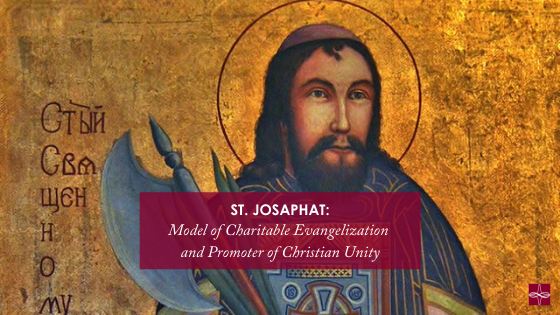



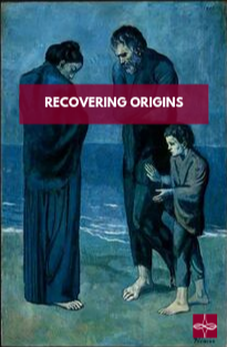


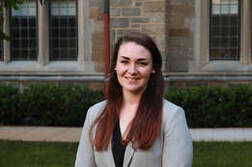
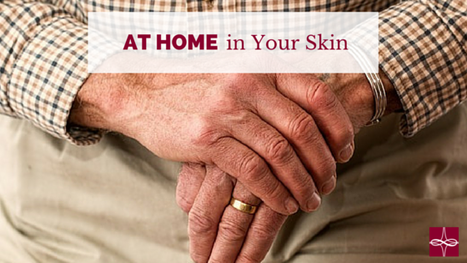

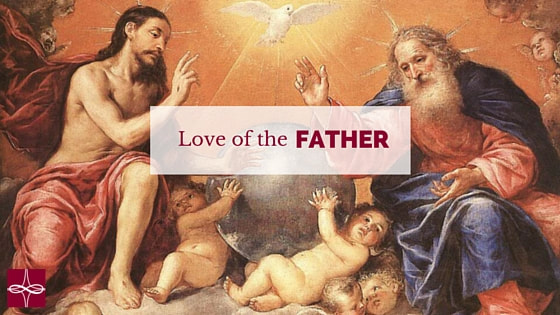

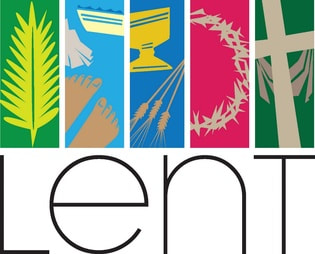

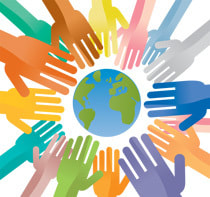
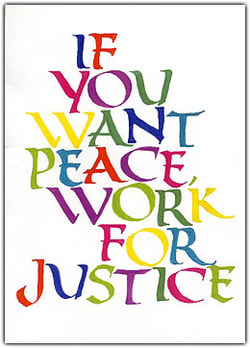

 RSS Feed
RSS Feed